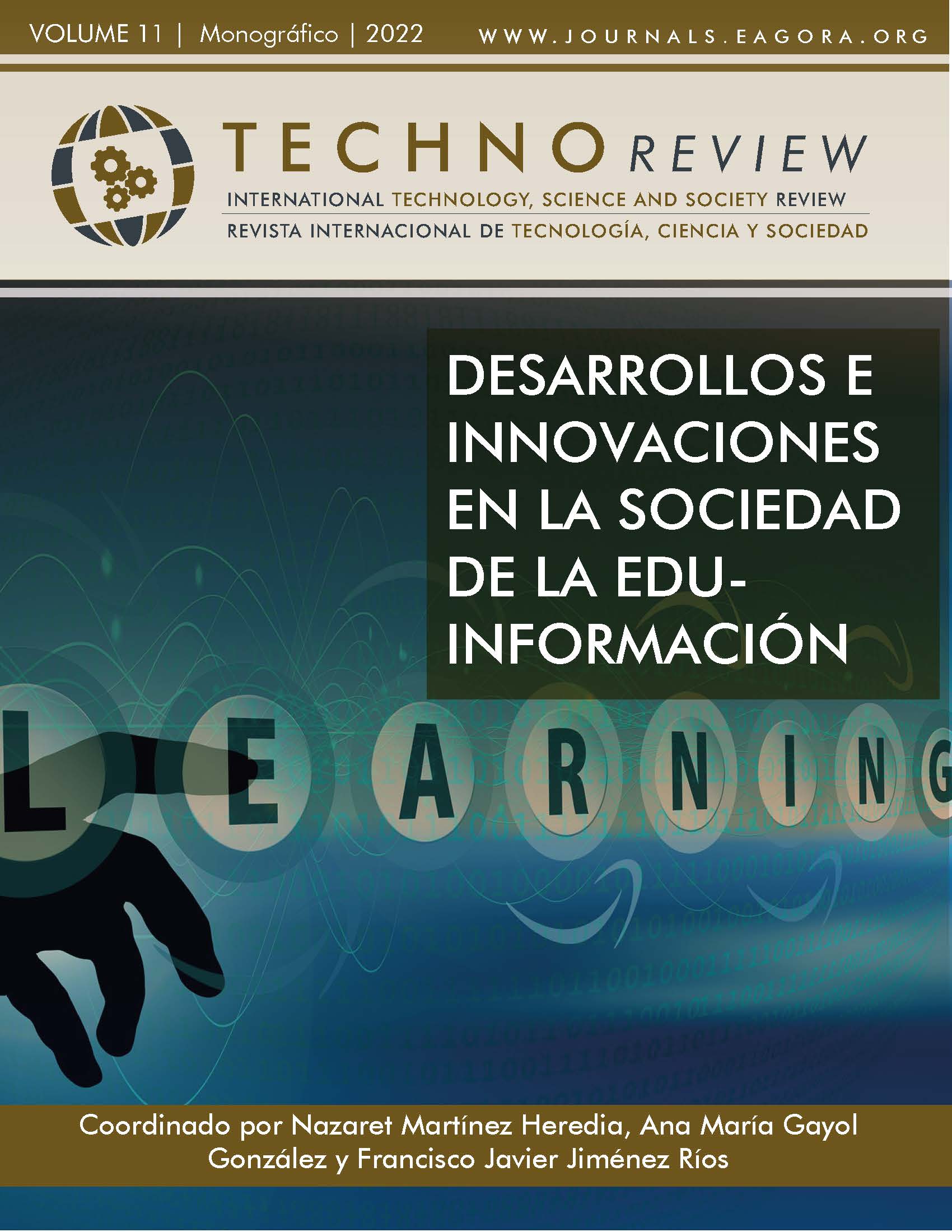Learning-by-mediating. Reflexive mediation in action
DOI:
https://doi.org/10.37467/revtechno.v11.3809Keywords:
Community mediation, Peers, Soft skills, Reflexivity, Empowerment, Cross-disciplinary methodologyAbstract
This paper aims at sharing some reflections and results concerning some experiences carried out within a European interdisciplinary Erasmus+ project. The main themes are community and peer mediation, considered from the perspective of educational innovation and experimentation. Two on-line videorecorded meetings of the project are analysed to show that the process of the project and this article-writing was consistent with mediation, that emerges as a topic within a discipline, but also as a cross- disciplinary methodology. The collective construction of meaning becomes a way to acquire knowledge, skills and attitudes while the participants are involved within interactive and constructive educational dynamics.
References
Akınoğlu, O., & and Tandoğan, R.O. (2006). The Effects of Problem-Based Active Learning in Science Education on Students’ Academic Achievement, Attitude and Concept Learning. Eurasia Journal of Mathematics, Science and Technology Education 3(1), 71-81.
Arendt, H. (1958 [2019]). Vita activa. La condizione umana. Bompiani.
Bernard, H.R. (2006) Research Methods in Anthropology. Qualitative and Quantitative Approaches. Altamira Press.
Boud D. (2001). Using Journal Writing to Enhance Reflective Practice. New Directions for Adult and Continuing Education. 90, 9-18.
Chi, M.T.H. (2009). Active-Constructive-Interactive: A Conceptual Framework for Differentiating Learning Activities. Topics in Cognitive Science, 1, 73–105.
Cinque M. (2016). “Lost in translation”. Soft skills development in European countries. Tuning Journal for Higher Education, 3 (2), 389-427.
De Luise D., & Morelli M. (2015). Huellas de mediación (Spanish version of Tracce di mediazione. Polimetrica). Editrice Zona.
Dewey, J. (1916). Democracy and education: An introduction to the philosophy of education. Macmillan. Fabbri, L. (2007). Comunità di pratiche e apprendimento riflessivo. Per una formazione situata. Carocci.
Freire, P. (1996 [2004]). Pedagogia dell’autonomia. Saperi necessari per la pratica educativa. Edizioni Gruppo Abele.
Freire, P. (1970 [2018])). Pedagogia degli oppressi. Edizioni Gruppo Abele.
Heritage, J. (1997). Conversation analysis and institutional talk: analysing data in D. Silverman (ed.). Qualitative research: Theory, method and practice. SAGE. 161-82.
Galimberti, U. (2005 [2019]). La casa di Psiche. Dalla psicanalisi alla pratica filosofica.
Gattiglia, N., & Morelli, M. (forthcoming). Le sfide della comunicazione multilinguistica in ambito sanitario. Curare e riflettere tra lingue, culture e mediazioni. Genoa University Press.
Gibbs G. (1988). Learning by Doing: A guide to teaching and learning methods. Further Education Unit, Oxford Polytechnic.
Giménez C. (2010). Mediazione interculturale. Teoria, metodo e pratica nell’esperienza di un’equipe universitaria (1994-2009) in D. De Luise and M. Morelli (eds.) Mediazione tra prassi e cultura: oltre i risultati di una ricerca. Polimetrica, 145-151.
Johnson, D. M. (1992). Approaches to research in second-language research. Longman.
Knight, J.K., & Wood W.B. (2005). Teaching more by lecturing less. Cell Biology education, 4 (4), 298-310 Lotti, A. (2020). L’esperienza dei GLIA dell’Università di Genova in Faculty development in Italia.
Valorizzazione delle competenze didattiche dei docenti universitari, Lotti A., Lampugnani P.A. (a cura di), Genova University Press, 205-218.
https://gup.unige.it/sites/gup.unige.it/files/pagine/Faculty_Development_in_Italia_ebook_indicizzat o.pdf
Magnoler, P. (2018). Le “competenze trasversali” nelle pratiche formative universitarie. Formare, 18(1), 111-124.
Michael, J. (2006). Where’s the Evidence That active Learning Works Advances. Physiology Education, 30, 159-167.
Modugno, A. (2017). Filosofia e didattica universitaria. Un Progetto di ricercar per l’acquisizione di competenze. Carocci.
Mondada, L. (2016). Challenges of multimodality: language and the body in social interaction. Journal of Sociolinguistics, 20(3), 336-366.
Munari, B. (1981) Da cosa nasce cosa. Laterza.
Paveau, M.A. (2017). L’Analyse du Discours Numérique. Dictionnaire des formes et des pratiques. Hermann.
Pesqueira Leal, J. (2005). Opening session First World Mediation Conference, Hermosillo, Mexico unpublished.
Remotti, F. (2019). Somiglianze. Una via per la convivenza. Laterza. Ricoeur, P. (1990). Soi-même comme un autre. Seuil.
Rodari, G. (1973). Grammatica della fantasia. Einaudi.
Santi, J.P. (ed.) (2018). Mediazione comunitaria in ambito penitenziario. L’esperienza tra pari nella II Casa di Reclusione di Milano- Bollate. Editrice Zona.
Spencer, L.M & Spencer S.M (2017), Competenza nel lavoro. Per una performance superiore. FrancoAngeli, Milano
Steinert Y. (2011). Commentary: Faculty development: The road less traveled. Academic Medicine, 86(4), 409–411.
Vezzulla, J.C. (2015). La mediación comunitaria. Cuestionamientos y reflexiones in D. De Luise and M. Morelli (eds.) Huellas de mediación (Spanish version of Tracce di mediazione. Polimetrica, 2010). Editrice Zona, 113-126.

